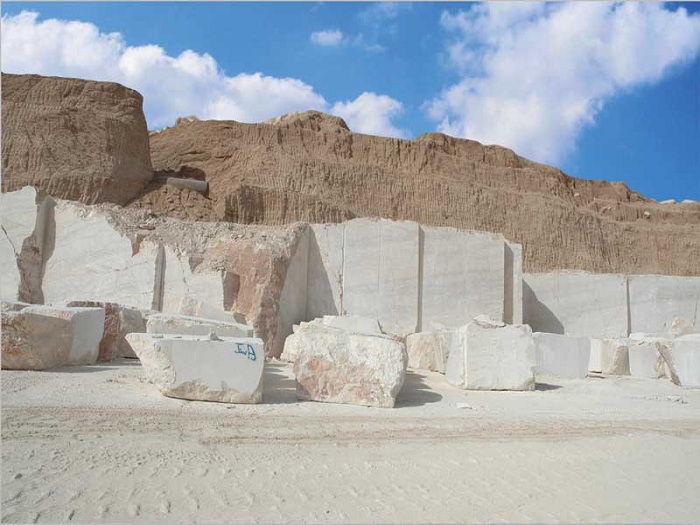Mining is a low-risk business

Given the importance of mining in the economy, mining is not a shutdown, and workers' work in the headquarters and queues must continue with the necessary protocols in place. Although the Corona virus has spread across the country, the mining sector must continue to operate as before, because it is a low-risk business against Corona.
According to the International Exhibition of Iranian Stone, the President recently stressed that the wheel of health and the country's economy should rotate, emphasizing that the resilience of Iran's economy to quarantine half-finished quarantine has been completed and that many businesses should help the Iranian economy. They started their activities again.
Although restarting economic activity could lead to a further spread of the corona, government funding does not allow the quarantine approach to be fully implemented, as in developed countries. Of course, the government has compiled a list of vulnerable and high-risk jobs in the wake of the Corona outbreak to provide them with facilities to compensate.
Reduce mining activity to the detriment of production
Mohammad Hossein Basiri, a university professor, pointed out the importance of using manpower in the mining sector: "The mine is directly related to manpower and is not like other jobs that can be replaced by telecommuting or machines, so given the prevalence of the coronavirus, there are some issues." They argued that labor in the mining sector could be at risk of transmitting the virus, and that mining should be considered a risky business.
"Most of the mines in our country are open, and the workers are working in a large, open space, and they are facing the wind," said the mining expert, referring to the open pit mines and the risk of transmitting the corona virus. Thus, mines are not considered high-risk jobs in the field of corona.
Referring to the factory environment and workshops, he said: "Factory space is often large, so human resources can continue to work by observing a comfortable social and imaginary distance."
In response to the fact that the gathering of workers in coal mines has caused concern, the university professor said: "Because coal mines are underground and in a closed environment, they are vulnerable to the corona virus." As reported, most of these mines have been closed to prevent the transmission of the virus since March last year, at the same time as the outbreak began, so coal mines are an exception and the government should provide facilities for them.
Basiri said that the mining sector is not closed, adding that the role of companies and organizations that have entered the field of mining is important and key, given that oil revenues have decreased and the emphasis on generating revenue from other sources such as mining has increased. .
He stressed: "Mining is one of the country's sources of income, which has a great impact on GDP." If the labor force in this sector is reduced and its activity is minimized, the country's economy will suffer; in other words, the decrease in mining activity is equal to the decrease in production, which is not at all for the country.
Babian University professor said that the sanctions had no effect on the mining sector, adding that although the sanctions affected oil, it had almost no effect on the country's mines.
Referring to Iran's capabilities in the field of mining, he continued: "Iran has a high capacity and capability in the field of mining." Energy carriers in our country are cheaper than other major mineral-producing countries in the world. There are many young and ready-made workers in the field of mining engineering and geology in the country. Another problem is that the mines in Iran are scattered and, like oil, are not concentrated only in the south of the country; therefore, by focusing on the mining sector, we can operationalize production growth.
The mine is not closed
Morteza Ahmadi, a university professor, divided the mining activities into two sections: headquarters and queue, saying: "Mining is an industry that consists of different parts." In general, it can be divided into two sections: headquarters and queue. The staff section includes administrative sections that, like any organization, have their own rules and follow the necessary protocols to deal with corona, but the queue section, which includes extraction, processing, and underground and daily activities, faces the risk of corona. It is important to note the situation of the workers.
Pointing to the importance of observing health principles in open pit and underground mines, the university professor said: "If each mining unit pays attention to safety and health principles and emphasizes social distance, it can definitely continue its activities without any problems. Work well with the workforce to manage the issue.
Ahmadi went on to say that mining should not be considered a high-risk business: "It is not at all correct to define mining as a high-risk business against coronavirus, because, as we have said, we can work in this area by following health issues and proposed protocols." continued.
He concluded: "Considering the importance of mining in the economy, it should be said that mining is not shut down and the work of workers in the headquarters and queue sectors must continue with the necessary protocols." Although the Corona virus has spread across the country, the mining sector must continue to operate as before, because it is a low-risk business against Corona.










